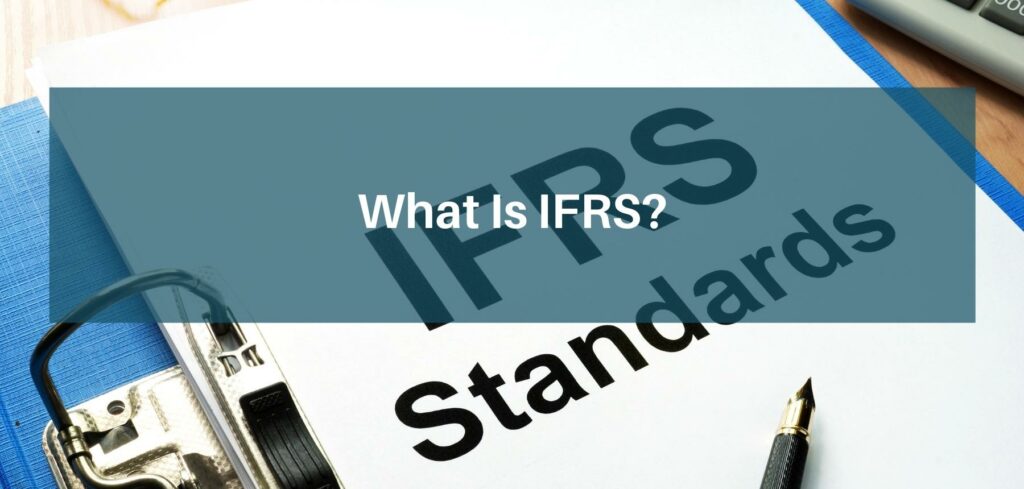As a small to medium-sized business, it is essential that you are at least familiar with the Generally Accepted Accounting Principles (GAAP) framework. This framework includes both the Accounting Standards for Private Enterprises and the International Financial Reporting Standards (IFRS).
As a business owner in Canada, you can choose to either follow the ASPE or the IFRS accounting standards to keep track of your business finances. However, choosing between the two requires a deeper understanding of what these accounting standards mean to your business.
What Is ASPE?
ASPE stands for Accounting Standards for Private Enterprise and is quite a recent introduction to the world of Canadian finance. First introduced in 2009, ASPE has become especially popular amongst Canadian small business owners thanks to its more simplistic accounting procedures that are well suited to the accounting needs of private enterprises.
Publicly traded companies do not qualify for ASPE guidelines as these standards are designed specifically for businesses owned by private individuals. As a result, a vast proportion of small businesses in Canada can benefit from using ASPE instead of the more complicated IFRS guidelines.
The Benefits Of ASPE vs. IFRS
The greatest advantage to a small Canadian business owner when using ASPE is the far less complicated disclosure and preparation requirements for financial statements as compared to IFRS. ASPE was specifically designed to simplify certain key accounting procedures that can help save both time and money. Its less stringent disclosure guidelines, as compared to the IFRS, is another reason why the ASPE has proven to be quite beneficial for small to medium-sized businesses.
What Is IFRS?

All businesses must follow uniform accounting guidelines for financial reporting in order to make bookkeeping and information exchange as efficient and transparent as possible. As more and more companies began to operate globally a set of uniform accounting standards was developed by the International Accounting Standard Board called the International Financial Reporting Standards (IFRS) in an effort to keep accounting standards uniform, efficient, transparent, and accountable across the board.
Today, the IFRS is used by businesses in over 100 countries around the world and has helped foster a sense of trust and financial credibility in the global market. Investors, owners, and other stakeholders alike can make more informed decisions about the financial well-being of any business as long as they are abiding by the IFRS principles and guidelines.
This set of uniform guidelines has also made it possible for companies to raise capital from global markets and grow rapidly in a short span of time. If you plan on taking your business public it is best that you follow the IFRS instead of ASPE. This is because once you go public you will have to follow IFRS as you would no longer qualify for ASPE.
IFRS For SMEs Standard
If you still want to follow the IFRS but don’t want to deal with its much more complex accounting guidelines Canadian small business owners can opt to choose for a less complex version of the IFRS, often referred to as IFRS for SMEs.
IFRS for SMEs was designed specifically for small to medium-sized businesses and omits a lot of the more complex accounting standards attributed to large public corporations. The guidelines on financial reporting are thus much more relaxed and specific with this particular version only containing accounting topics relevant to small to medium-sized businesses.
Just like the ASPE, these standards have much fewer mandatory disclosures with accounting terms and language that are much easier to understand for the average small business owner. Using the IFRS for SMEs you are still following the global IFRS principles and guidelines but without the complexities associated with it.
What are the 3 accounting standards in Canada?
For-profit companies in Canada have three primary choices when it comes to picking the accounting standards (or foundation of accounting) on which their financial statements will be based.
These three options are – International Financial Reporting Standards (IFRS) / Accounting Standards for Private Enterprises (ASPE) / Tax basis accounting (accrual basis).
IFRS VS. ASPE VS. IFRS For SMEs
As a rule of thumb, if you are a public company operating in Canada you must abide by the IFRS guidelines. Following the IFRS guidelines are also your best option if you plan on taking your company public in the future, or have a parent company that currently uses IFRS. In that case, you must also follow IFRS to keep accounting standards uniform across the board.
It is also a good idea to check up on what your competition is using when it comes to accounting standards. If you find your competition using IFRS it might be a good idea for you to follow suit as that helps facilitate cross-business comparisons.
If you own a private company then you are free to choose between ASPE and IFRS. In most cases, it would make sense to use ASPE as it is far simpler and a lot less demanding than the IFRS. You can also choose to use the IFRS for SMEs depending on the nature of your business and your specific accounting needs.
If you are not an accounting whiz and don’t quite understand the benefits of choosing one accounting standard over the other it is best to consult with an online accounting firm or expert Canadian accounting consultants. They can guide you on what Canadian accounting standard best applies to your business practice. They can also assist in ensuring that your financial statements are as accurate and organized as possible so you have the best idea of where your business stands from a financial standpoint at any given time.
Choosing the right Canadian accounting standard for your business is just one of the many ways you can optimize efficiency and productivity while minimizing cost.
Who Can Use the ASPE?
According to Quickbooks “If your business’ stocks aren’t traded on a public stock exchange, you are considered a private company. Due to the reduced reporting needs of a private enterprise, only these organizations are allowed to use the ASPE when drafting financial statements.”
Tax basis accounting (accrual basis)
If you aren’t obligated to incorporate GAAP in your financial statements (for example, if you aren’t having an audit or review), your accountant will most likely create financial statements only for tax purposes. This makes the procedure easier because you’re only thinking about tax reporting requirements. When tax is used as the foundation for reporting, the financial statements are usually presented more simply and with fewer disclosures.
*Please note that this information is only accurate as of September 22nd, 2020*



